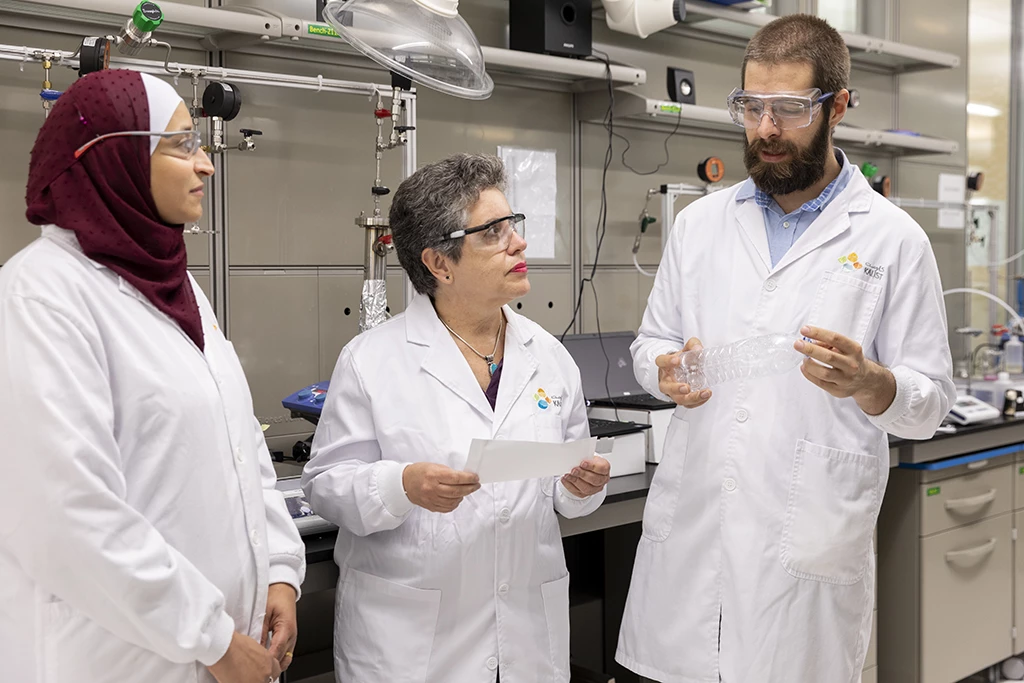In the chemical-production industry, energy-intensive processes are constantly being used to remove unwanted molecules from liquids. It now looks like much of that energy could be saved, however, by utilizing filters made from discarded plastic bottles.
According to Saudi Arabia's King Abdullah University of Science & Technology (KAUST), approximately 40 percent of the energy consumed in chemical plants is utilized in purification processes such as distillation and crystallization. Conventional filtration membranes typically can't be used instead, as they get degraded by the harsh solvents that are often present. Tougher ceramic membranes are one alternative, although they tend to be quite expensive.
With these limitations in mind, KAUST scientists looked to the polyethylene terephthalate (PET) plastic that is frequently used in the production of items such as single-use water bottles. Unlike the materials which existing low-cost filtration membranes are made of, PET is "mechanically and chemically robust," allowing it to withstand exposure to harsh compounds.
The researchers started by dissolving PET obtained from bottles, then using a solvent to make it solid again – but this time in the form of flat membranes. Over a series of trials, a polymer known as polyethylene glycol (PEG) was added to the PET in various concentrations, forming pores of differing sizes and numbers within those membranes.
It was ultimately found that when it came to removing molecules from liquids, the best-performing PET membranes had pores ranging from 35 to 100 nanometers in diameter, covering up to 10 percent of the total membrane area. The team now hopes that the technology could be adapted for large-scale use.
A paper on the research was recently published in the journal Applied Polymer Materials.
Source: KAUST




